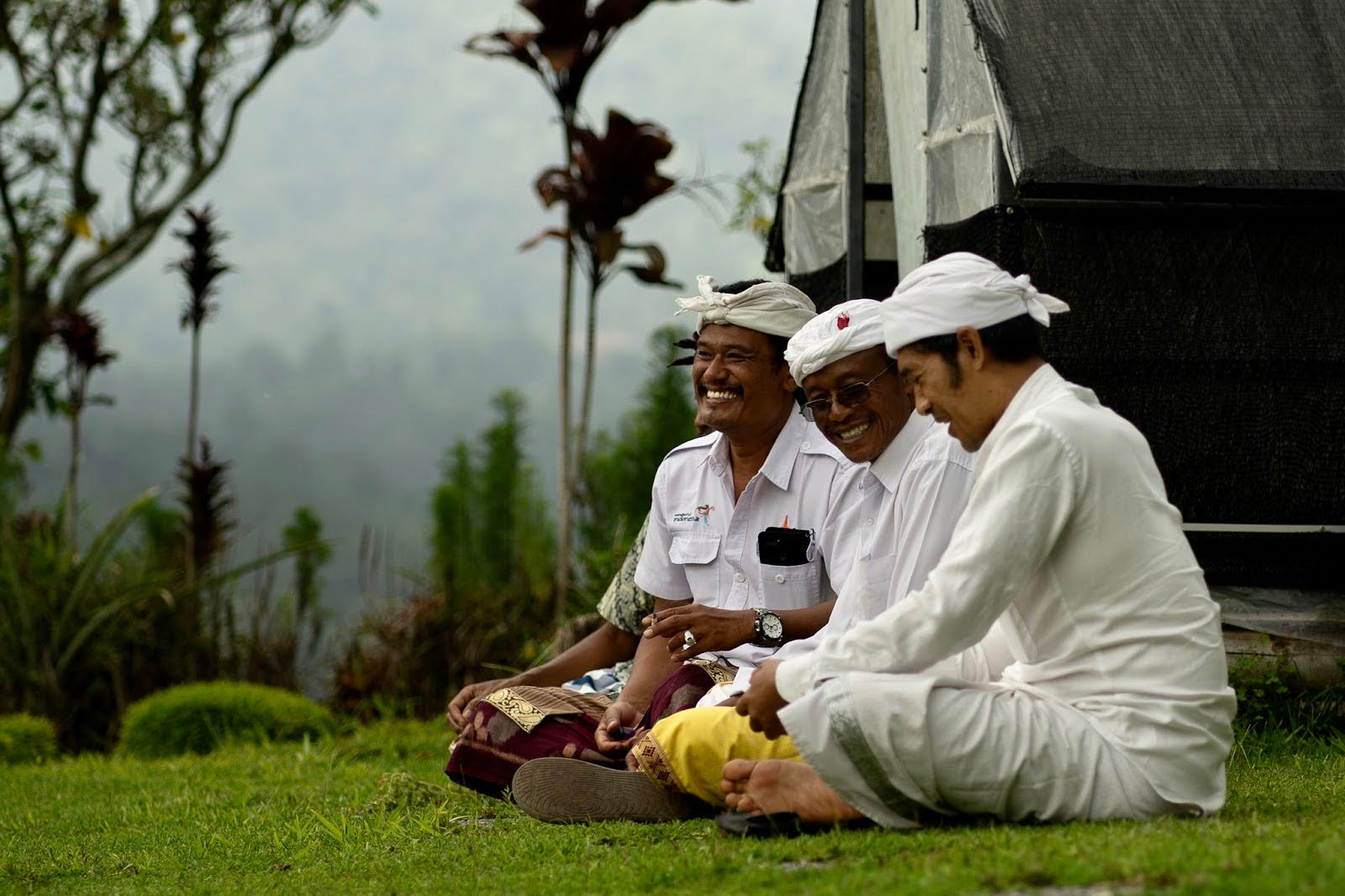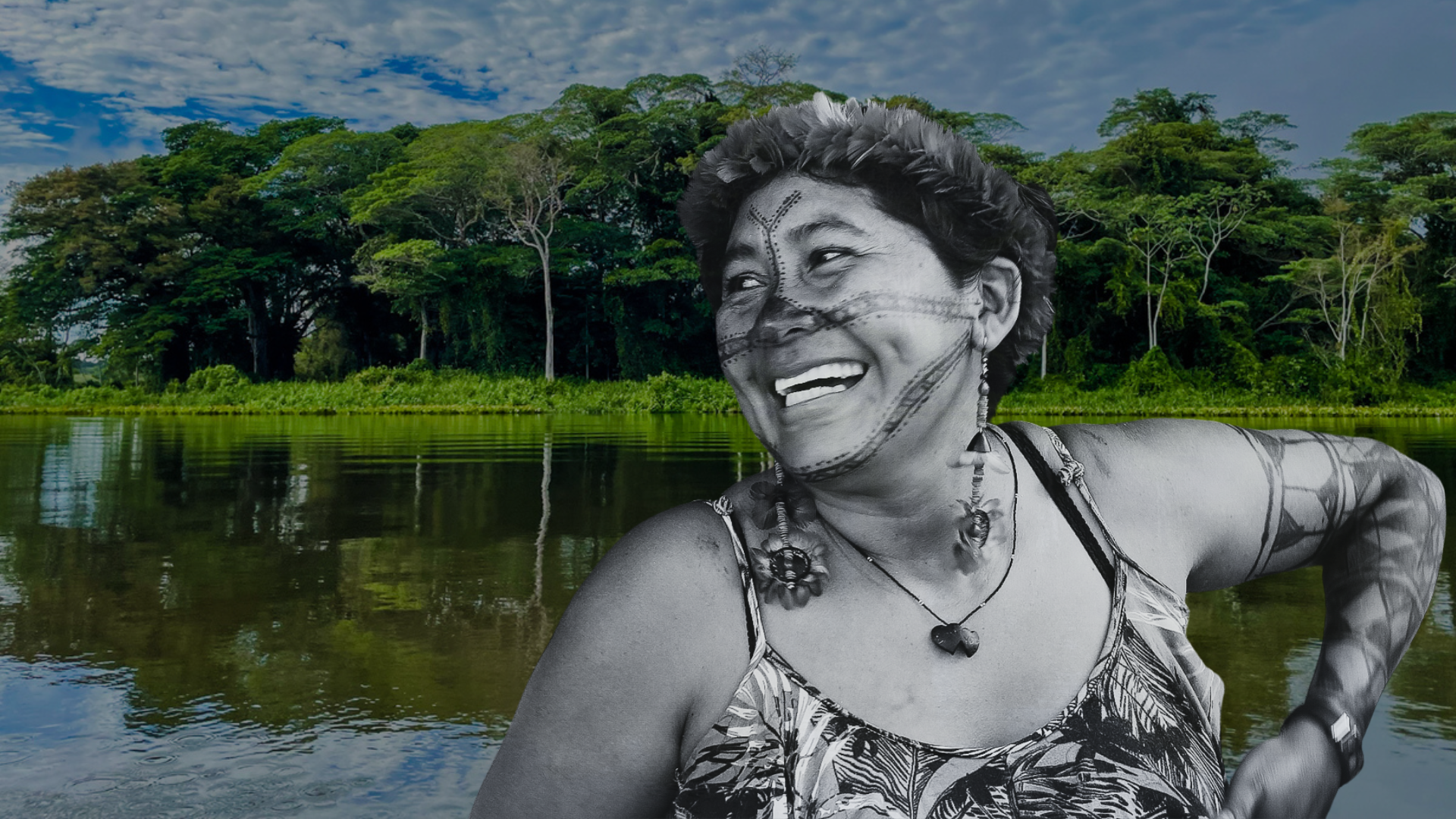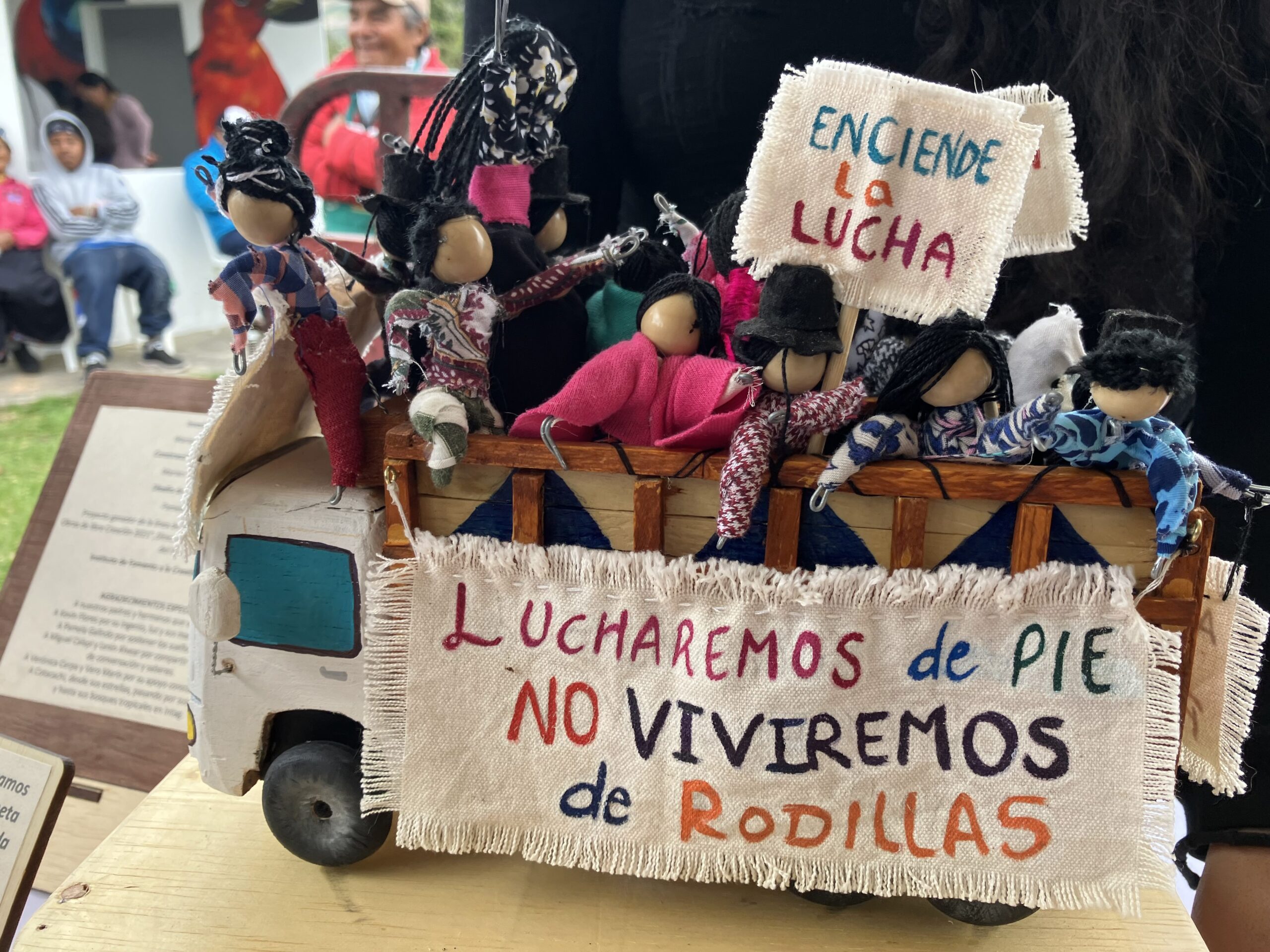Earth Day 2021: Going Grassroots

We have to go deeper than metal straws, compostable cups, and more trees.
With more than a billion people in over 190 countries participating in a day of action, Earth Day is one of the largest secular observances in the world. Let’s use this moment to go deeper than metal straws, compostable cups, and more trees. The climate crisis grows more dire by the minute, and grassroots solutions get far too little attention. At Thousand Currents, our partners continue to show us how to create scalable solutions, from food to climate to the economy. Today, we pass the mic to the youth, women, and Indigenous peoples who are developing and implementing real time solutions to save our planet.
REIMAGINING FOOD

Art by Ethel Tawe for 13 African Farmers
“I wish for people in the world to understand that we as human beings are at the top of the food chain. Nature takes care of us. So if we are not taking care of nature, who will take care of us? We must understand that, as a human being, it matters where you are and what you are doing with your surroundings. It’s self-awareness of where in the food chain you are and what you are doing to conserve all our natural resources.” -Chuma McGoyi *read more about Chuma in our Holding our Ground: Voices for Food Sovereignty narrative series series Our partner, Surplus Peoples Project (SPP) is building peoples’ community power to transform agriculture through agroecology, equitable land ownership, and alternatives to dominant models of production. Through the lens of food sovereignty, food is produced through sustainable methods, contains cultural knowledge and acts as a type of glue for community relations and well being. From partners like SPP, we have learned about the power of organizing communities to not only practice agroecology as a way to build food sovereignty, but also as a method for building a power from below that emphasizes the importance of a sustainable relationship with the earth. According to the CLIMA Fund’s Soil to Sky report, if agroecology – a practice, science, and movement that uses ecological concepts and principles in the design and management of sustainable agricultural ecosystems – was invested in at scale, it would mitigate the same amount of carbon emissions by 2050 as China emits in the same time period. Agroecology also restores water health, builds political power at the local scale, and ensures communities have access to culturally-relevant food.
SUPPORTING INDIGENOUS RIGHTS

Photo of Indigenous land defender, courtesy Articulação dos Povos Indígenas do Brasil (Apib)
“An attack on the Indigenous people, is an attack on earth itself. So the Indigenous fight, is a fight for life…Indigenous blood, not a single drop more.” –Articulação dos Povos Indígenas do Brasil (APIB) in a Video Statement Indigenous peoples have been fighting for more than 500 years for the right to live. Our Catalyst Partner, Articulação dos Povos Indígenas do Brasil (APIB) is part of this history of resistance. They are the widest formation of Indigenous peoples in Brazil and were founded with the purpose of strengthening the unity of Indigenous peoples across regions and organizations in the country in order to mobilize Indigenous peoples against Indigenous rights violations and attacks. Recent research demonstrates that while Indigenous peoples around the world make up less than five percent of the total human population, they manage over 25 percent of the world’s land surface and support about 80 percent of the global biodiversity. Yet many Indigenous peoples are fighting every day for their rights to water, soil, air, seeds, food, forests, and land. Because they are demanding the change necessary to meet the scale of the climate crisis and rising authoritarianism globally, they are facing violent repression from the same forces that benefit from the status quo.
FUNDING MOVEMENTS
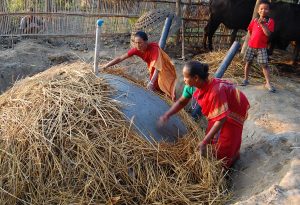
Bamiya Chaudhary installing Biogas
Bamiya Chaudhari is a shareholder of Bachhauli Nari Chetana Co-operative. She was one of the two women that our partner, Nari Chetana Kendra, or the Women Awareness Center Nepal (WACN) sent for Biogas Plant training in Dang District. Biogas is a renewable fuel and sustainable replacement to conventional fuels like kerosene or firewood. At the time, women weren’t permitted to travel distances, but with the support of WACN, she participated in the training and now she is an established technician, a job traditionally reserved for men. To date, she has installed about 300 plants, producing a steady income, and now she is facilitating biogas training for other women. There’s a reason why WACN, a network of 40,000 rural women, were the first responders when COVID struck – faster than most government and international actors. Because for 20 plus years, WACN had been building collective decision-making processes through their 40 plus cooperatives where women farmers who earn less than $2 a day have over $4 million of their own assets in circulation. They consider themselves asset builders for their communities and peer philanthropists to each other.
SOLIDARITY IN ACTION
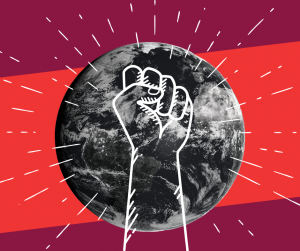 “Solidarity is not about imposing your own agenda, it is about supporting communities to achieve their vision, what they want to build.” – Nonhle Mbuthuma of the Amadiba Crises Committee With the escalation of resource extraction, authoritarian governments, and land grabbing globally, it is critical that funders respond by providing more flexible, holistic support to Earth Defenders. The CLIMA Fund’s report , Resourcing Earth Defenders: The Philanthropic Response to Heightened Repression in Latin America, found that grants to environmental, land, and Indigenous rights defenders amount to just 5% of all human rights funding globally, while the same population represents over half of all human rights defenders killed in the last few years. As we face the most mounting environmental crisis of our time, it will take all of us to meet the scale of this crisis. This is a moment for us to seize and advance what it means to be in solidarity with each other. It is an opportunity to go above and beyond, and radically shift the way we approach our work and our role as funders.
“Solidarity is not about imposing your own agenda, it is about supporting communities to achieve their vision, what they want to build.” – Nonhle Mbuthuma of the Amadiba Crises Committee With the escalation of resource extraction, authoritarian governments, and land grabbing globally, it is critical that funders respond by providing more flexible, holistic support to Earth Defenders. The CLIMA Fund’s report , Resourcing Earth Defenders: The Philanthropic Response to Heightened Repression in Latin America, found that grants to environmental, land, and Indigenous rights defenders amount to just 5% of all human rights funding globally, while the same population represents over half of all human rights defenders killed in the last few years. As we face the most mounting environmental crisis of our time, it will take all of us to meet the scale of this crisis. This is a moment for us to seize and advance what it means to be in solidarity with each other. It is an opportunity to go above and beyond, and radically shift the way we approach our work and our role as funders.
Related Stories
